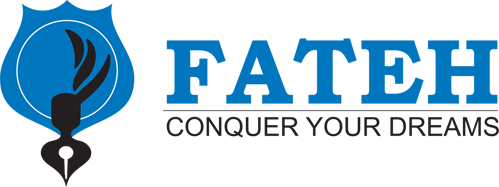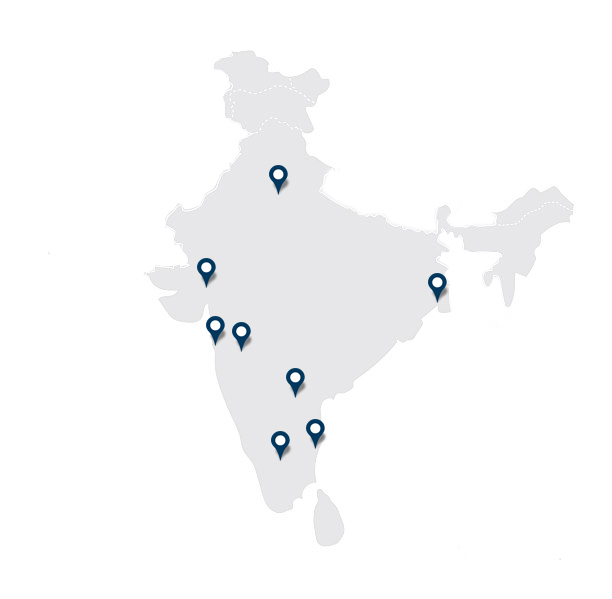Introduction
Why Study in Ireland?
Ireland’s Global Reputation
Innovative Research and Global Impact
Excellent research in many disciplines, including technology, science, business, and the arts, is a hallmark of Irish universities. The nation’s emphasis on research and development attracts talented people worldwide, promoting a varied and intellectually exciting atmosphere.
Thanks to its strong government policies and significant research funding, Ireland offers a suitable intellectual and career development setting.
Cultural and Social Benefits
Among the biggest attractions to overseas students are Ireland’s pleasant surroundings and rich cultural past. The hospitality of the Irish people is well known; it makes guests comfortable. Ireland’s culture is a unified mix of traditional music, dance, and literature, providing students with a rich and immersive experience,
Welcoming Environment for International Students
Ireland has a range of traditions, giving international students great chances to connect cross-culturally and widen their horizons of view of the world. The country features a lively social environment with many events, festivities, and parties running all year. There is always something to do, whether visiting historic castles, enjoying Irish music or enjoying the lively pub.
Unique Cultural Experiences
Living in Ireland immerses students in a captivating fusion of tradition and modernity. Ireland presents a vibrant and enlightening cultural encounter from ancient Celtic customs to contemporary metropolitan life. Students could participate in cultural celebrations, tour the picturesque countryside, and experience the local way of life.
Top Universities for MS in Ireland
Trinity College Dublin (TCD)
Global rankings:
Ranked 75th in the QS World University Ranking 2026, this university is usually among the best in the world.
Popular programs:
Computer science, engineering, business, and Humanities.
Unique selling points:
Historic campus, renowned faculty, and extensive research facilities.
University College Dublin (UCD)
-
Global rankings:
Ranked 118th in the QS World University Ranking 2026, this institution is well-known for its research output and outstanding academic standards. -
Popular programs:
Business, law, medicine, and social sciences. -
Unique selling points:
Large campus, diverse student body, and strong industry connections.
University College Cork (UCC)
Global rankings:
Ranked 246 in the QS World University Ranking 2026.Popular programs:
Environmental Science, Business, and Law.Unique selling points:
Strong focus on sustainability, excellent research opportunities, and vibrant student community.
National University of Ireland, Galway (NUIG)
-
Global rankings:
NUIG ranked 284th in the QS World University Ranking 2026, thanks to its outstanding research and academic achievements. -
Popular programs:
Science, engineering, arts, and medicine. Ireland offers some of the top data science programs in Ireland, particularly at institutions like NUIG. -
Unique selling points:
Beautiful campus, supportive learning environment, and active student life.
University of Limerick (UL)
Global rankings:
Renowned for its emphasis on research and employability. It has a QS World Ranking of 401.
Popular programs:
Engineering, business, science, and health sciences.
Unique selling points:
Beautiful riverside campus, cooperative education program, and extensive sports facilities.
Dublin City University (DCU)
-
Global rankings:
Ranked 410 in the QS World Ranking 2026. -
Popular programs:
Engineering, business, science, and education. -
Unique Selling Points:
Strong industry ties, state-of-the-art facilities, and a focus on practical learning.
Maynooth University
-
Global rankings:
Maynooth is famous for its impressive research output and wide range of programmes. It is ranked 771-780 globally. -
Popular programs:
Science, engineering, humanities, and social sciences. -
Unique selling points:
Historic campus, supportive community, and interdisciplinary research centres.
Technological University Dublin
-
Global rankings:
Ranked 781-790 in the QS World Ranking 2026, this institution is known for its practical approach to education and strong industry connections. -
Popular programs:
Engineering, technology, business, and arts. -
Unique selling points:
Urban campus, focus on applied research, and strong ties with the industry.
Popular MS Courses in Ireland
Key Subjects and Curriculum Highlights
Computer Science
-
Curriculum Highlights:
Emphasise sophisticated subjects, including cybersecurity, data science, and artificial intelligence. -
Career Prospects:
There is a high demand for tech professionals in Ireland’s thriving IT sector.
Business and Management
-
Curriculum Highlights:
Covers areas such as international business, finance, and marketing. -
Career Prospects:
Graduates are highly sought after by multinational companies and startups.
Engineering
-
Curriculum Highlights:
Includes specialisations in civil, mechanical, and electrical engineering. -
Career Prospects:
Strong demand for engineers in various industries, including construction, technology, and manufacturing.
Life Sciences
-
Curriculum Highlights:
Encompasses biotechnology, pharmaceuticals, and environmental science. -
Career Prospects:
Excellent opportunities in research, healthcare, and environmental management.
Course Structure and Key Modules
Core Modules
Elective Modules
Research Projects
Career Prospects
Cost of Studying MS in Ireland
Tuition Fees
The cost of tuition varies depending on the university and program. On average:
- EU Students: €5,000- €30,000 per year.
- Non-EU Students: €11,000 – €30,000 per year.
Presented below is a table displaying the average costs per year categorised by subjects:
| Course (Masters) | Fees (EU) | Fees (Non-EU) |
|---|---|---|
| Business | €7,500 – €37,000 | €16,000 – €36,000 |
| Arts and Humanities | €6,000 – €10,000 | €10,000 – €20,000 |
| Science, Technology, Engineering and Mathematics | €4,500 – €12,000 | €7,000 – €27,000 |
| Health Sciences | €3,500 – €25,000 | €4,000 – €50,000 |
Living Expenses
- Accommodation: €500 – €1,200 per month.
- Food: €200 – €300 per month.
- Transport: €50 – €100 per month.
- Miscellaneous: €100 – €200 per month.
Tips for Managing Living Expenses
- Student Discounts: Students can take advantage of student discounts on transport and entertainment.
- Part-time Work: International students can earn by working part-time during their studies.
- Budgeting: Plan your budget carefully to manage expenses effectively.
Scholarships and Financial Aid
- Government Scholarships: Such as the Government of Ireland International Education Scholarship.
- University Scholarships: Offered by individual universities based on merit and need.
- Private Scholarships: Provided by organisations and companies.
| S. No. | Name of the Scholarship | Description |
|---|---|---|
| 1 | The Government of Ireland International Education Scholarship | – 60 scholarships for one year at Bachelor, Master, or PhD levels – €10,000 stipend for one year – Fully funded tuition and registration costs |
| 2 | The Walsh Fellowship | – Up to 30 scholarships annually – For postgraduates in the Teagasc Research and Knowledge Transfer Program – Fields: food, crops, animals, grasslands, environment, economics, and rural development – €22,000 per student – Up to two years for MSc<br>- Up to four years for PhD – Primarily at Teagasc Research Centre |
| 3 | Government of Ireland Postgraduate Scholarship | – Funded by the Department of Education and Skills – Managed by the Council – For Research MS, PhD, or Direct PhD (MS leading to PhD) – €16,000 annual stipend – Up to €5,750 per annum for fees, including non-EU fees – €2,250 per annum for eligible direct research expenses |
Eligibility Criteria and Application Process
- Academic Excellence: High academic performance.
- English Proficiency: Proof of English language skills.
- Application Documents: Including transcripts, letters of recommendation, and a personal statement.
Admission Requirements for MS in Ireland
Academic Qualifications
- Minimum Requirements: Bachelor’s degree in a related field with a GPA of 3 or above.
- Accepted Degrees: Vary by program but generally require a degree relevant to the Master’s course.
English Language Proficiency
- Accepted Tests: IELTS, TOEFL, PTE.
- Required Scores: Typically IELTS 6.5, TOEFL 90, PTE 63.
- Preparatory Courses: These are available for students needing to improve their English skills.
Application Process
Step-by-Step Guide:
- Research Programs: Identify programs that match your interests and qualifications.
- Prepare Documents: Gather transcripts, test scores, recommendation letters, and a personal statement.
- Submit Application: Through the university’s online portal.
- Pay Fees: Application fee, if applicable.
- Await Response: Universities will notify you of their decision.
- Apply for Ireland student visa: Once accepted, start your visa application process with proper documentation.
Important Deadlines: Application deadlines vary but typically fall between December and March for September intake.
Conclusion
FAQs on Finding Student Accommodation in UK
Yes, Ireland is considered very safe with low crime rates.
Yes, students can work part-time during their studies and full-time during holidays.
Ireland offers a two-year post-study work visa for non-EU students.
- Engage with Alumni: Reach out to current students and alumni for insights.
- Visit Campus: If possible, visit the campus to get a feel for the environment.
- Stay Organized: Keep track of deadlines and application requirements.


